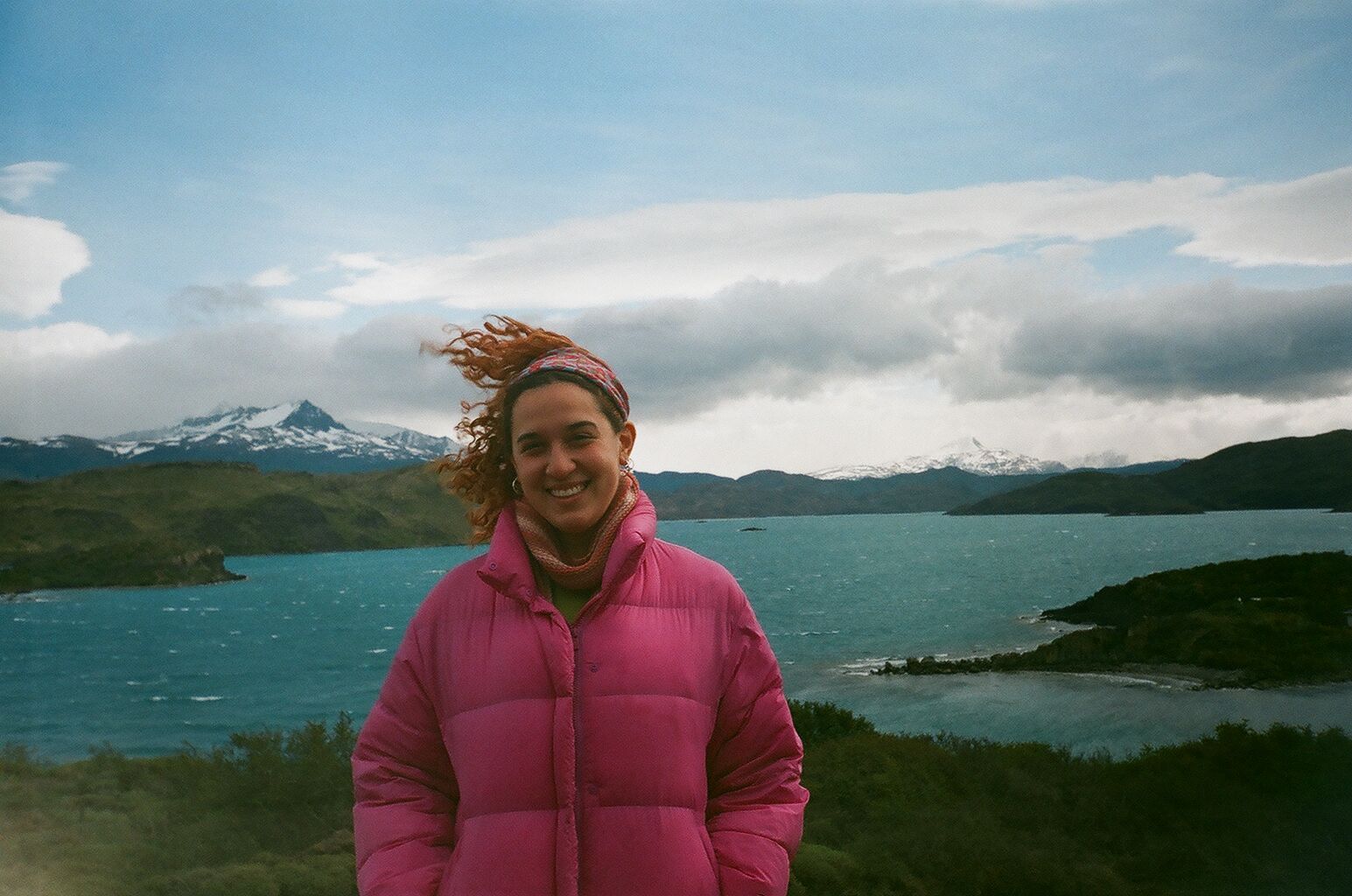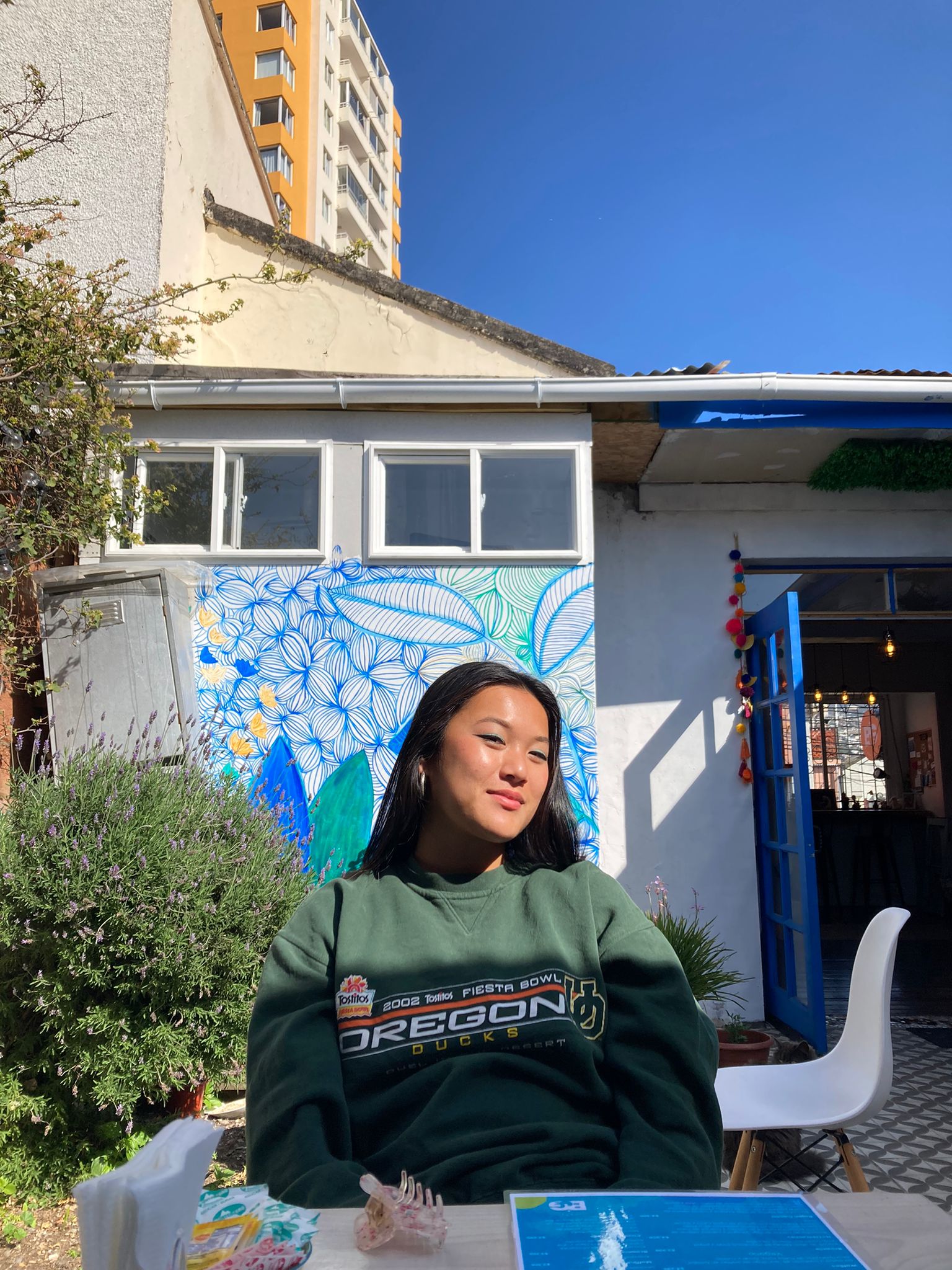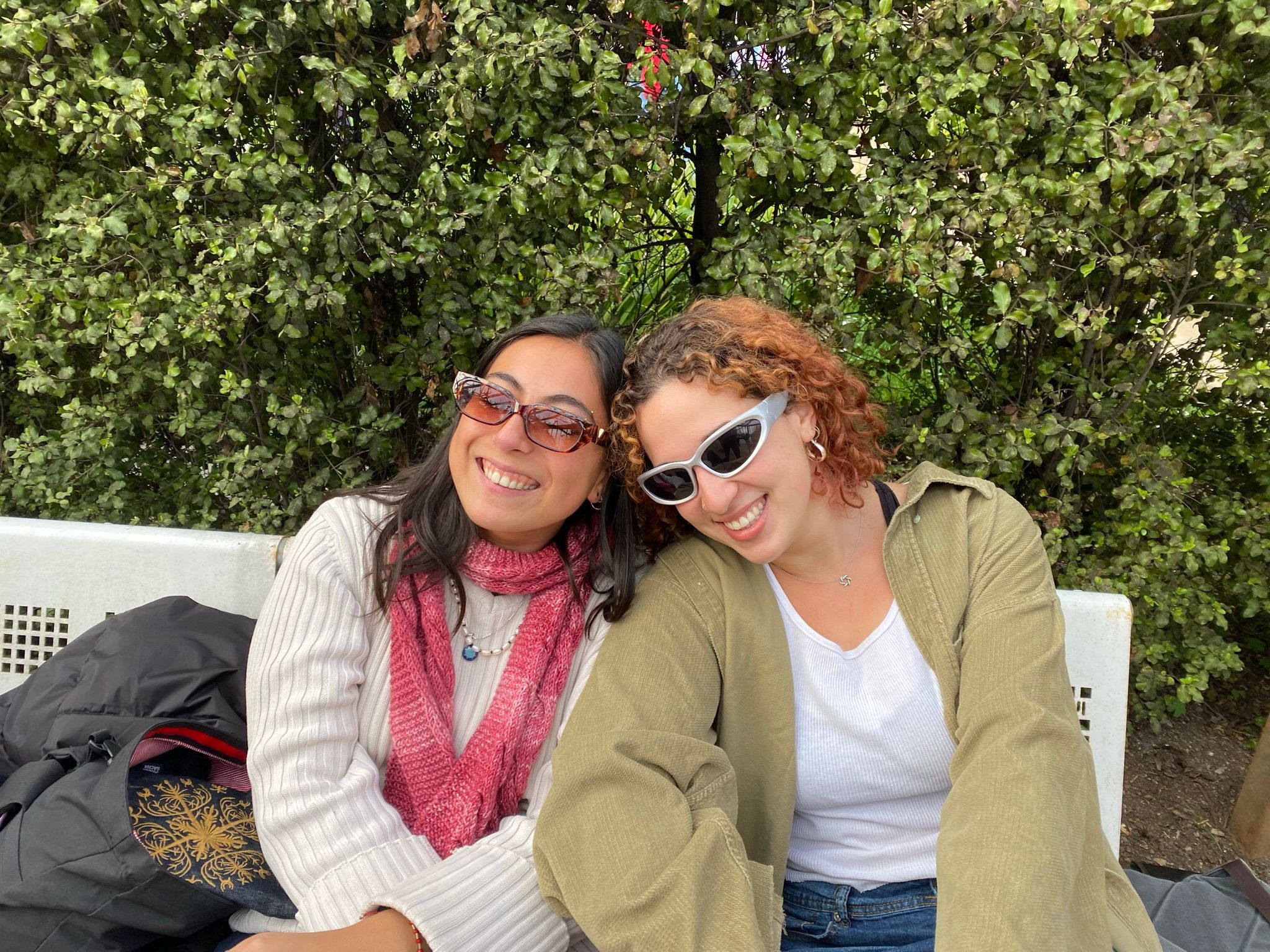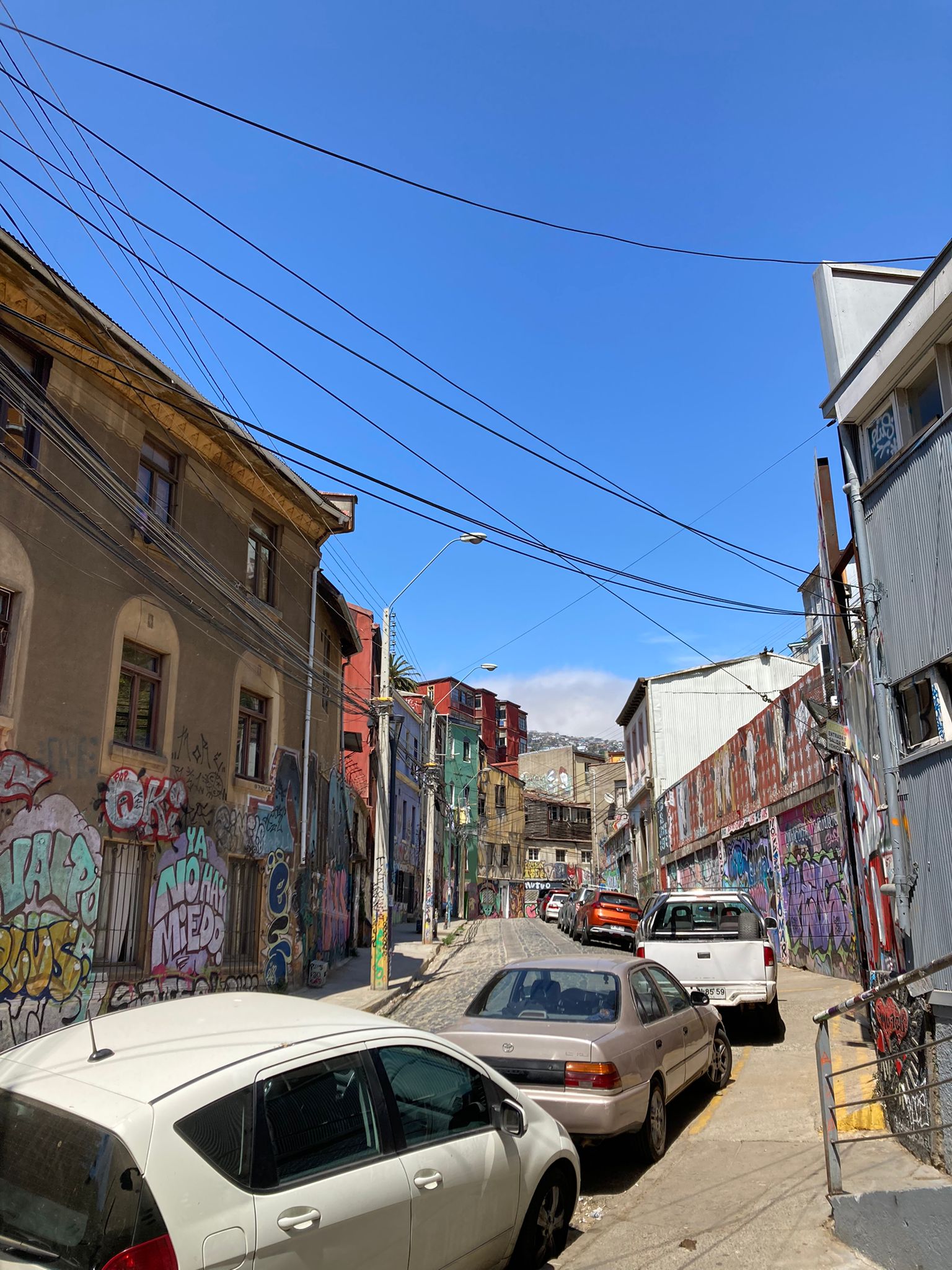
c/o Cate Levy
Welcome to Argus Overseas, a column brought to you by the Features Section. In this column, we chat with students who are currently abroad to highlight what you need to know about studying outside of the University. For our first edition, we spoke with students in Chile to hear their thoughts on what it’s like studying in a different language and to get their advice for those considering going abroad.
Last week, The Argus spoke with Cate Levy ’24 and Kiana Low ’24, who are studying in Chile through one of the University’s pre-approved programs. Wesleyan partners with the Middlebury College C.V. Starr Schools Abroad program, which offers multiple language immersion programs across the world to students studying at American colleges full-time. With a strong emphasis on Spanish-language immersion, the program provides positions for students at eleven different Chilean universities in Concepción, Santiago, Temuco, Valdivia, Valparaíso and Viña del Mar, and Villarrica.

c/o Kiana Low
The decision to study in Chile was easy for Levy and Low, who viewed this as an important chance to hone their Spanish-speaking skills. Levy, who studies anthropology at Universidad Alberto Hurtado in Santiago, learned about the program from Assistant Professor of Spanish Carolina Diaz, who is from Chile.
Although the University offers many options for Spanish immersion in a variety of countries, Chile presented a unique option for Low, who wanted to study in Latin America and chose to go to the coastal town of Viña del Mar, known for its beaches and laid-back lifestyle.
Although Levy and Low are not studying in the same city, their experiences highlight the invaluable opportunity offered through study abroad programs, no matter how daunting it can feel.
Application Process
The best place to start with the studying abroad process is learning how to apply in the first place. In this section, we explore the application process for this pre-approved program and what to be prepared for when applying. Like many other students, Low and Levy completed an application through Wesleyan’s study abroad portal, ViaTRM. However, they were also asked to complete a separate application, specific to Middlebury, in Spanish.
“I do feel like the Middlebury program makes you work for it because you have to do a lot of program-specific application stuff,” Low said.
In addition to completing a cover letter and resume in Spanish, they were required to fill out a variety of preference forms related to their chosen program.
“You have to submit a resume and a cover letter in Spanish for your university,” Levy explained. “There’s a ton of questions about [host family preferences], introducing yourself, and submitting a writing sample. If you want to do an internship, which I ended up doing, you have to submit [another] cover letter and resume for that.”
Finally, in accordance with Wesleyan’s Language Policy for Study Abroad, Low and Levy were required to complete “Introduction to Hispanic Literatures and Advanced Practice in Spanish” or a higher-level course to apply for their program.
Day-to-Day
Though Low and Levy study in different cities, adjusting to a routine outside of Wesleyan proved to be equally challenging for them both.
“I felt like I had no idea what…my day-to-day life was gonna look like,” Low said. “Because the program really praises independence, they kind of just threw us in there.”
For Levy, day-to-day life is characterized by the hustle and bustle of a lively city, a lifestyle vastly different from the one in Wesleyan’s small bubble.
“I take the metro [to class every day],” Levy said. “I walk to the metro and then take the bus to university and then go to my class. I also pack lunch to eat there [and] eat with friends or other exchange students. I come home, watch TV, and go skate probably at night.”
Low and Levy agreed that the academic workload is not as demanding as Wesleyan’s.
“[The classes] are really not that bad,” Levy said. “From my experience, it’s been way lighter in terms of coursework. But I feel nervous to go back [to Wesleyan] because I feel like everything takes so much energy for me to do [there].”
With free time to explore their respective cities, Levy and Low feel that they have been able to engage with life in Chile.
“You will have a lot of free time on your hands,” Low said. “We just don’t really get that much work. Some of my classes don’t even take attendance really. I will say academic engagement is not [the] core part of my experience here.”
Overall, Levy and Low affirmed that adapting to a new environment has pushed them out of their comfort zones in a positive way.
Making Friends

c/o Cate Levy
Although it can be intimidating to make new friends halfway through college, having a community while abroad is a crucial part of the experience.
“I didn’t expect that I was gonna be hanging out with a lot of Americans and other international students, but now I love [it],” Low said. “I feel like I’ve also begun to make more Chilean friends, but my support network is [definitely] other international students.”
For Levy, skateboarding has been a major part of integrating into the local community and making friends.
“Honestly, most of my friends here are Chilean, which is why I don’t really have a lot of friends in the program,” Levy said. “I met them very randomly through this friend who I met skating.”
Making friends with local residents has also helped Levy adjust to living in a non-English-speaking environment.
“It was really important for me to become friends with people who just speak Spanish so that I could really become more integrated into life here instead of…feeling like an outsider looking in,” said Levy. “You’re in a new country and you don’t know anyone, so what do you have to lose?”
Language
Throughout their stay in Chile, all of the students in the program commit to speaking only Spanish.
“We have a language pledge where we can’t speak in English at all to other students on the program,” Levy said.
This drastic switch was an adjustment for Levy and Low; they learned to express themselves using an entirely different set of rules and vernacular.
“A big part of my personality is making people laugh or just self-deprecating humor,” Levy said. “That was hard at first [to translate]…it took the first month to really [get the hang of it]. I was just really observing and trying to listen to everything and pick up everything from conversations I was having.”
Levy and Low pointed out that the Chilean dialect differs from other Spanish dialects, meaning their learning in the classroom did not prepare them perfectly.
“They always say that the Chilean accent is the most difficult Spanish in the entire world,” Low said.
Both emphasized the importance of not being afraid to express themselves in Spanish.
“[It’s been important for me to] ask a ton of questions,” Levy said. “Also just not being embarrassed. Being like, ‘What does this mean?’ and ‘How do I say this if I’m trying to make this joke?’ People really helped me out. So now I feel like I can be funny in Spanish.”
Internships
In an effort to immerse students in Chilean culture, the Middlebury program offers a variety of internship opportunities. Both Levy and Low have internships in addition to their university classes. Levy works with a legal activism organization that often handles cases arising from the Estallido Social, an outburst of political demonstrations that began in 2019. The protests are in response to social inequality, corruption, and some of the actions taken by President Sebastián Piñera’s government.
“I’m working for this organization called Corporación de Promoción y Defensa de los Derechos del Pueblo [CODEPU]. It was founded during [Augusto Pinochet’s] dictatorship,” Levy said. “It’s a collective of lawyers who offer legal assistance to people who have suffered human rights abuses at the hands of the government. [Many] of the cases that CODEPU picks up have to do with the Estallido Social.”
While Levy feels that her internship has played a vital role in her experience abroad, Low feels neutral about her internship experience in Chile.
“I’m doing an internship at a public health clinic,” said Low. “Their public health system is really good, I think, in comparison to ours, which has been interesting to learn about. I’ve [made] very good personal connections through my internship…[but] I would say that without [my internship], my experience living abroad in Chile would be just as fulfilling.”
Political Climate

c/o Kiana Low
Chile has a long history of societal unrest, and it is imperative to recognize the country’s past in order to understand the current state of the country. From 1973 to 1990, Augusto Pinochet ruled Chile as a military dictatorship, inspired by the economists known as the Chicago Boys and the economic philosophy of neoliberalism. Since then, the country has endured persistent political and societal instability.
“In the 1970s and ’80s, it was very brutal,” Low explained. “A lot of people were murdered. People disappeared. But there’s a lot of people who still don’t really think that [it was] a bad thing. The government propaganda is strong.”
Even though Chile now has a democratic government, the country still faces problems.
“The police force here is still incredibly violent and repressive,” Levy said. “My Uber driver told me, ‘I remember when the police came, waved a gun in my face, and took my dad and we didn’t know where he was.’”
After recent protests, Levy’s university had to shut down for some time.
“The police roll up in seconds and they have tanks that spray tear gas all around, called guac,” Levy said. “They literally were throwing tear gas inside of my university. They moved all of our classes online for a little while because we’re right next to Santiago Centro, which is where a lot of the protests happen.”
Adjusting to Culture Shocks
Living in a small Chilean town, Low discussed the culture shocks that come with feeling like an outsider.
“I think that people do really stare a lot, like they just really do. That kind of [gets] a little exhausting, obviously, especially when you already know you stick out” said Low. “But now I feel like I don’t even notice them and I also just feel more comfortable.”
Levy became aware of new considerations that she had to adjust to in her new living situation.
“My biggest culture shock was probably living [with a parent]. I went to boarding school when I was 14, ” said Levy. “ [At Wesleyan,] you’re not really answering to anyone. But I always have to text [my hostmom], ‘Oh, you know, I’m going to this thing’…. Here, I’m living in a huge city, where I’m a foreigner. I speak a different language. I’m a young woman.”
Positive Takeaways and Advice
Ultimately, both Low and Levy are grateful for their experiences studying abroad and what they’ve learned from it. Levy thinks it’s especially important to be aware of the historical and cultural nuances of living in a new country.
“I love Chile…it’s a really complicated country, so just try to immerse yourself in it and listen to people,” said Levy. “If you’re [going to] come here, be very mindful that they’re still going through a lot of shit. The dictatorship wasn’t that long ago and there’s still a lot of collective trauma.”
Low thinks it’s important to take advantage of the opportunity and enjoy every moment of the experience.
“I think that there’s also something really beautiful about studying abroad in the way that everyone knows they’re not gonna be here forever unless you are going to move there afterward,” said Low. “So, I think it’s [important to] recognize that you’re only going to be here once, probably under these circumstances, so you might as well just be the most free version of yourself.”
Jo Harkless can be reached at jharkless@wesleyan.edu
Eugenia Shakhnovskaya can be reached at eshakhnovska@wesleyan.edu